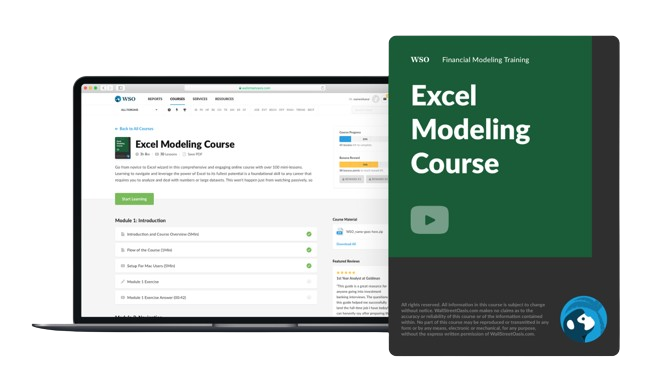Financial Planner
Helps people achieve their long-term goals, including saving for college, investing in retirement, or getting the most out of an insurance policy.
What Is A Financial Planner?
Financial planners, also called Personal or Certified Financial Planners, help people achieve their long-term goals. This can include saving for college, investing in retirement, or getting the most out of an insurance policy.
They also help clients with taxes, wills, trusts, and estate planning. They are usually licensed by the state in which they live. Their job is to help their clients plan for and execute long-term objectives.
They usually specialize in tax, wealth management, or retirement planning. Financial planners collaborate with individuals seeking to enhance their personal finances or with institutions such as banks, insurance companies, or wealth management firms.
For example, a financial planner can help you manage savings for retirement, invest in your child's college tuition, or plan for your estate after death.
Certified financial planners are financial planners who hold the CFP® designation. Accredited financial planners can be members of the NAPFA (the National Association of Personal Financial Advisors) in the US or the EFPA, its European counterpart.
Key Takeaways
- Financial planners guide individuals in achieving long-term financial goals, offering expertise in investment, tax, and insurance planning.
- Financial planners must meet rigorous standards, including holding bachelor's degrees and obtaining certifications like the CFP® designation.
- Financial planners may be compensated through commissions, asset-based fees, or hourly rates, ensuring clients understand these structures for transparency.
- Clients select financial planners based on factors like educational background, experience, services offered, and fee transparency.
- Financial planners assist with budgeting, debt management, investment, and estate planning, providing customized strategies aligned with clients' goals.
Legal and Educational Requirements to Become a Financial Planner
Technical competence and client relationship management are essential for financial planners. In addition, they need to demonstrate critical thinking, problem-solving, and excellent interpersonal skills. They should also be able to network and build a brand image.
CFPs are required to abide by strict standards. They must follow a code of professional ethics.
Financial planners must follow the ISO 22222:2005 standard, which defines the financial planning process and the professional’s ethical behavior, competence, and experience.
Academic Requirements and Background
Candidates for this role typically need a bachelor’s degree or higher from an accredited university or college in the US or internationally. This requirement is essential when applying for designations like the CFP.
If a candidate doesn’t have the required academic degree upon registering for the CFP program, they must complete their studies within 5 years after passing the examination.
Note
The CFP program offers candidates various pathways to obtain the designation based on their education and professional accreditations.
The CFP® Program
Candidates with professional designations or credentials may be eligible to enroll in the Accelerated Path Program, which offers a fast track to obtaining the qualification.
Similar to the verification process for university or college qualifications, the CFP Board will verify and approve candidates' professional accreditations and designations. In addition, the following qualifying charters allow students to pursue the Accelerated path program:
- Certified Public Accountant (CPA)
- Chartered Financial Analyst (CFA®)
- Chartered Financial Consultant (CHFC) - The Chartered Financial Consultant is a U.S.-based professional designation. The charterholders must have relevant 3-year professional experience, complete the studies program, pass the examination, and participate in the annual Professional Recertification Program.
- Chartered Life Underwriter (CLU) - Issued by The American College, the Chartered Life Underwriter is a professional designation considered the gold standard of insurance planning. Aspiring CLUs must have three years of professional experience within the five years preceding the obtainment of the designation, qualifying 24 semester credit hours, exam completion, and continuous education.
- Licensed Attorney
- Doctor of Business Administration
- Ph.D. in financial planning, finance, business administration, or economics
- CFP® certification from outside the U.S. - The Financial Planning Standards Board affiliate provides the certificate.
Note
CFP® students who have enrolled in CFP Board Registered Programs and completed coursework requirements on or after January 1, 2012, and candidates who qualify for the Accelerated Path Program must take the Capstone course or its alternative.
The Capstone course is an extensive financial planning development course to enhance student's skills, knowledge, and abilities. The course aims to assess candidates' ability to deliver professional financial planning services effectively.
The Capstone alternative requires qualifying students to fulfill the CFP Board's experience requirement, which can be achieved through either 6,000 hours of professional financial planning or 4,000 hours of apprenticeship meeting specific criteria.
The CFP® Exam
An essential part of the process, the CFP® exam, is the final step before obtaining the designation. Students can register for the examination before completing coursework requirements, provided they submit proof of completed courses by the education verification deadline.
They can sit for the exam if they submit proof of completed courses by the education verification deadline.
The exam takes place three times a year. The students can choose one of the three exam sessions - in March, July, or November. The exam tests candidates' knowledge with 170 questions covering the following topics:
- Professional conduct and regulation
- General principles of financial planning
- Risk management and insurance planning
- Investment Planning
- Tax planning
- Retirement savings and income planning
- Estate planning
- Psychology of financial planning
The questions comprise stand-alone, short scenarios, and case study questions. The exam duration is 6 hours, divided into two sections of 3 hours each for the first 85 questions and the second half.
Note
Like other financial exams, the CFP test requires a registration fee of $925. The earlier registration fee is set at $825. Late registration, typically within one month before the exam date, costs $1,025. The registration fee gives the student access to the CFP Board practice exam. This is a sample set of 170 questions to help with preparation.
Good-To-Have Qualifications for a Financial Advisor
Aside from the qualifying professional credentials mentioned in the Accelerated Path program, a certified financial planner could benefit from other professional designations outlined below:
- Financial Risk Manager (FRM®): Accredited financial professionals proficient in risk management concepts and strategies execution
- Chartered Alternative Investment Analyst (CAIA): Holders of this charter possess knowledge and competence in providing advice on alternative investments
- Chartered Investment Manager (CIM): Available in Canada only, this designation is awarded to financial professionals experienced in investment management, particularly portfolio management, upon passing the relevant examination
- Chartered Investment Management Analyst® (CIMA®): This certification is the premier investment education accreditation for client-facing advisors
- Chartered Investment Counselor (CIC): Recognized and authorized by the Investment Advisor Association (IAA), chartered investment counselors often serve as portfolio managers
- Enrolled Agent (EA): Tax specialists authorized by the federal government to represent taxpayers before the Internal Revenue Service (IRS)
Choosing The Right Financial Planner
Choosing a financial planner or advisor can be challenging. If you are new to the idea, it can often seem overwhelming. However, depending on your location, you can check the NAPFA and EFPA databases to find a certified financial planner near you.
First, before you start, you need to understand how financial planners and advisors make money. Their compensation, including different fees and commissions, is explained below.
Fee and Compensation Structure
Let us take a look at the fee and the compensation structure below:
1. Commissions
A financial advisor can receive a commission for the products they sell. As a result, they can be incentivized to sell financial products that offer higher commissions for them but are not appropriate for the client.
Commission-based financial planners are likely to act more in their interests than in the interests of their clients. Hence, ensuring that the advisor you seek does not obtain any fees or commissions from anyone other than yourself is essential to ensure no conflict of interest.
For instance, if an individual invests $5,000 in a mutual fund with an upfront fee of 4%, the advisor would get $200 ($5,000 x 0.04), and the money going into the fund would be $4,800.
This upfront fee, characteristic of front-load mutual funds, is a one-time charge. Generally, it can range between 3% and 6%, decreasing when more money is invested.
2. Asset-based fees
This fee is typically set around 1%, but it can vary depending on the total assets under management (AUM) and may be lower or higher. The more critical the account or the portfolio, the bigger the payoff for the advisor. Some financial planners may set minimum account requirements.
The asset under management fee structure incentivizes advisors to focus on a larger pool of investors rather than favoring specific financial products that generate high commissions.
Note
Typically, big financial institutions boast AUM in the hundreds of millions or billions. For example, Bridgewater Associates, the leading hedge fund, manages $150bn as of 2021. Meanwhile, the top-ranking asset manager, BlackRock, has $9.496 trillion of assets.
3. Hourly, monthly or annual fees
These fees can be flat charges that your advisor may apply. Typically, the hourly rates are a few hundred dollars, while the annual cost could be a few thousand.
4. Commission and fee
This fee structure is a hybrid compensation model, which combines the charge for AUM and the fee for selling a product, such as life insurance. Once you understand how these financial professionals earn money, you can discuss this topic with your selected advisor.
Fiduciary vs. Non-Fiduciary
Knowing the difference between fiduciary financial planners and non-fiduciary professionals is important. One of the key distinctions between fiduciaries and non-fiduciaries is how they earn money and the potential conflicts of interest associated with their compensation.
They don’t receive commissions for recommending a product to a client. Instead, a fiduciary will document the process and the decision-making.
As they receive fees from the clients, they put their client’s interests first. Therefore, their advice does not conflict with their own and their client’s interests.
On the other hand, non-fiduciary advisors establish less rigorous and detailed suitability criteria for their clients. They usually receive commissions from the products they recommend (or sell).
Another key distinction between these two groups of advisors is the ethical obligations. A fiduciary must follow the rule of loyalty and the rule of care towards their clients. These principles-based rules guide and influence the relationship between the advisor and the client.
Note
Disclosure of conflict of interest is mandatory for a fiduciary and not required for non-fiduciaries. Serving the client's best interest is a primary duty of fiduciaries.
The SEC's Regulation Best Interest, also known as Reg BI, outlines the four principles - care, disclosure, conflict of interest, and compliance - that help an advisor act in a client's best interest.
Failure to comply with this regulation can trigger fines, cease-and-desist orders, and even financial fraud charges.
The Questions You Can Ask Your Advisor
Once you have identified your needs and goals and know more about the types of advisors and how they're paid, you can prepare for the meeting with them.
Selecting an advisor is a significant decision. The consequences of choosing the wrong advisor can profoundly impact your financial future. The quality of your advisor can significantly impact your ability to achieve financial goals, potentially affecting your retirement timeline and lifestyle.
It's essential to ask potential advisors pertinent questions to ensure you select the one who prioritizes your interests. Below are a few questions to help you choose the right financial planner.
- What is their educational background?
- What is their experience as far as your goals and needs are concerned?
- How much time per day would they dedicate to your financial planning?
- What types of services do they provide?
- What are their fees, and how do they charge for their services?
- As a client, are there other important qualifications for you, and how do these qualifications influence your decision-making process?
- Are they fiduciary?
- What is the proposed working relationship between us?
- Do they operate independently from any financial institution or product provider?
- Can you outline your investment philosophy and approach?
What Does a Financial Planner Do?
Financial planners usually have a wide range of responsibilities. However, their primary role is helping clients achieve their long-term goals by properly utilizing and investing their earnings.
They start by setting out a strategy to achieve these goals. Some of the key duties include:
- Advising and educating clients on saving and investing, taxes, wills, trusts, and estate planning
- Providing tools for budgeting and planning
- Helping manage debt
- Collaborating with other professionals, such as tax advisors or estate planners, to optimize client benefits
- Providing support and guidance to clients during financial downturns or life transitions
- Organizing and attending client meetings
- Assisting clients in building long-term wealth through the creation and implementation of suitable financial plans
- Assisting with asset allocation and portfolio construction
- Assessing and managing investment risk
- Wealth management
The Personal Financial Planning Process
The first step in a financial planner’s process is establishing and specifying the advisor-client relationship. Establishing clear communication channels, cooperation, and trust-building are vital to the advisor-client relationship.
After that, the advisor will look at your unique situation in-depth. This includes assessing what you want to do with your money and how much time you have to achieve the goal.
Next, a financial advisor will look at your financial situation using factors ranging from your income and job conditions to liabilities and assets.
Note
Financial planners may also request bank statements to understand your financial situation comprehensively.
The next step is to determine your goals and priorities. Understanding your goals and priorities will assist in prioritizing various financial decisions effectively. The conversation part of the process can touch on lifestyle choices or retirement preferences.
After this, it’s important to identify precisely where your money comes from, your sources of income, including other investment accounts that you may have, and what you have planned for your future. This helps the planner know which type of investments or retirement plans would be best for you.
Upon completing these steps, financial planners typically create and implement an investment policy statement (IPS) tailored to your objectives, ensuring alignment with any budgetary constraints.
Note
As part of the working relationship with your planner, you will have an annual review meeting. As implied by its name, an annual review meeting entails discussing accomplishments, assessing strategy viability, and planning for the future.
During the annual review meeting, you can discuss the following points:
- Review the plan and modify it if necessary
- Assess and evaluate the investment strategy and its performance
- Consider any positive (or negative) tax implications
- Income protection
The Future of the Financial Planning Industry
According to the U.S. Bureau of Labor Statistics, the financial planner profession is projected to grow by 5% in the next decade, which is below the average growth rate for all occupations.
However, this does not suggest that the role of the financial advisor is becoming obsolete. Moreover, the value of in-person interaction remains significant despite the proliferation of robo-advisors. This is important for the relationship between the advisor and their clients.
In addition, as demographics shift and change globally, people will still need advice on their finances and how to create and maintain wealth. This is particularly relevant when unexpected events, such as financial and health crises, occur.
With an aging population, the demand for protecting assets and navigating complexities around the estate, taxes, and transfer of wealth becomes even more important.
Retirement accounts and insurance policies will continue to attract more funds as they are intended to mitigate risks associated with life's uncertainties. This increase in demand will create a need for financial planners going forward.
Financial Planners Working Hours and Salary
Financial planners typically work at least 40 hours per week. Their work-life balance fares better than other financial professionals, such as investment bankers.
The job of a financial advisor is generally well-paid. According to the Bureau of Labor Statistics, the median salary for financial planners was $89,330 in 2020. Depending on their skills and their client base, some professionals can earn well above $150,000 a year.
To get more updated info, take a look at the table below:
| Quick Facts: Personal Financial Advisors | |
|---|---|
| 2022 Median Pay | $95,390 per year $45.86 per hour |
| Typical Entry-Level Education | Bachelor's degree |
| Work Experience in a Related Occupation | None |
| On-the-job Training | Long-term on-the-job training |
| Number of Jobs, 2022 | 327,600 |
| Job Outlook, 2022-32 | 13% (Much faster than average) |
| Employment Change, 2022-32 | 42,000 |
Source: U.S. Bureau of Labor Statistics
Free Resources
To help you advance your career, check out the additional resources below:











or Want to Sign up with your social account?